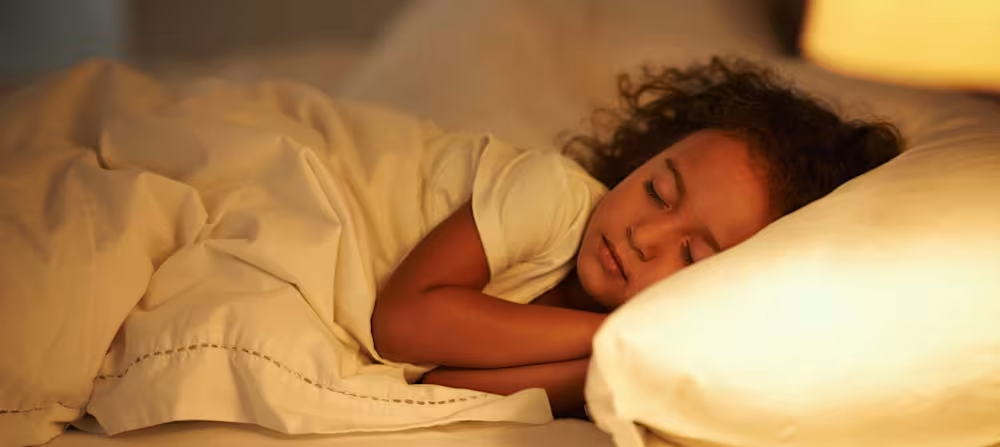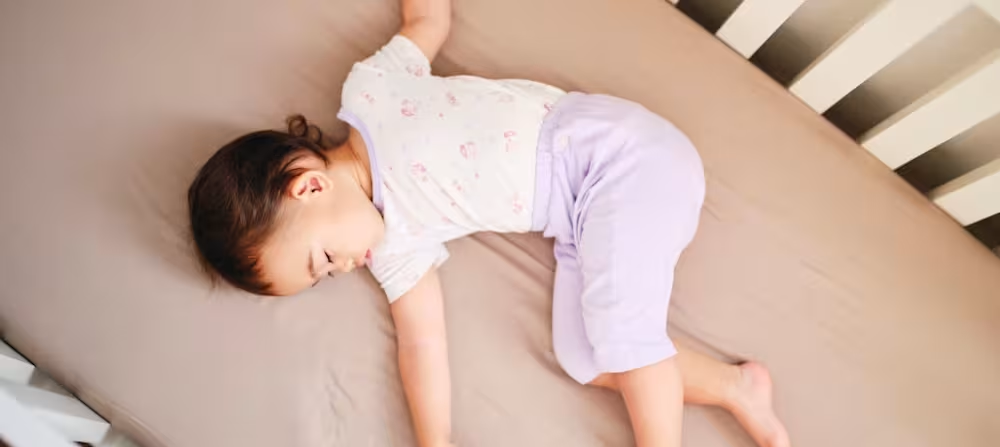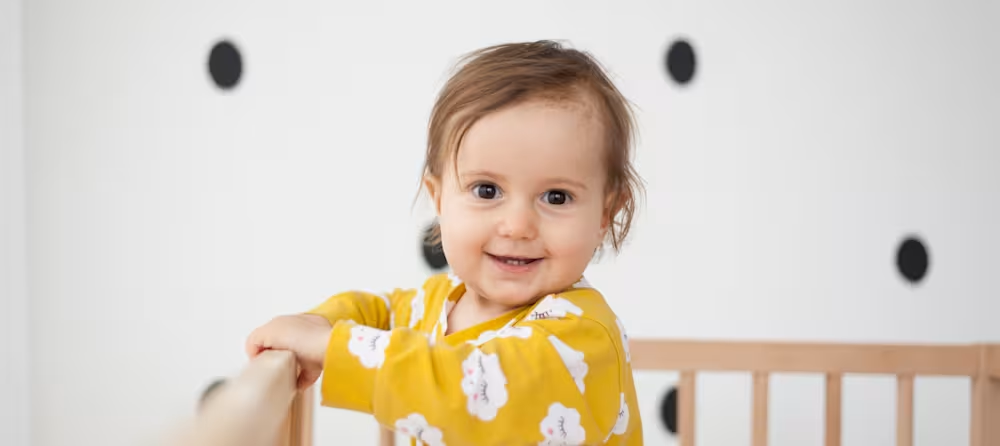How to know if it’s time to sleep train?
Updated Dec 09, 2025

Are you looking to make a change to the way your child falls asleep? We define sleep training as the process of teaching a child to self-soothe and fall asleep independently. There are many and considerations to make when deciding to sleep train, including your child’s age and sleep habits, as well as your parenting preferences. In this article, we’ll let you know when your child may be developmentally ready for sleep training, give you examples of how some parents decide it’s time to start, and answer frequently asked questions about helping your little one learn to fall asleep independently.
Is your child developmentally capable of falling asleep independently?
Ensuring your little one is developmentally capable of falling asleep independently is an important step in deciding when to sleep train. As much as new parents may want to get some good shuteye, young babies still need support when it comes to sleep. Little ones under 3 - 4 months are expected to wake overnight for feedings and comfort and it’s normal that they often require help to fall asleep and stay asleep.
At around, infants may be able to practice falling asleep on their own as their sleep patterns begin to mature, though most won’t be able to do so at this age consistently. at this age can help set a foundation for healthy sleep habits.
Then, at closer to 6 months, babies are usually developmentally able to and can regularly drift back to sleep independently. At this age, sleep training may be more “successful,” though this depends on your child’s .
Are you looking to remove a sleep onset association?
It’s common and appropriate for children to briefly between sleep cycles. Children and adults do this []! However, if a child receives parental help at the beginning of the night to fall asleep, it can be challenging for them to fall back to sleep without it. This can lead to disrupted sleep — like frequent night wakings and short naps. For example, if a parent helps them fall asleep at bedtime, it’s common for them to want that comfort in the middle of the night too. This can lead to fragmented and shortened sleep for the entire family. Examples of common actions that lead to sleep onset association issues include:
Feeding
Using a rocking motion (in arms/stroller/swing/car)
Holding or patting a child to sleep
There is nothing inherently wrong with helping your child fall asleep in any of these ways. As we mentioned above, it is necessary to help your little one fall asleep when you have a very young baby. Babies under the age of six months aren’t able to fall asleep on their own consistently and often require help — this is normal!
However, when we continue these habits past the point where it’s developmentally necessary, it can lead to inadequate sleep for children and their parents. If you’re looking to make a change, sleep training is a tool that can teach your child to fall asleep without the sleep onset association.
Is bedtime taking too long?
How long is too long? Ideally, most kids will take 10 - 20 minutes to fall asleep once their bedtime routine is over. However, some children who take longer to wind down will need additional time.
When a parent remains present after the lights are turned out, we often find that this can distract children and lead to prolonged bedtimes. This can reduce a child’s sleep and interfere with a parent’s ability to engage in other essential activities — like putting other kids to bed or binging their favorite shows. Parental downtime is a must! We tend to see this more with toddlers and preschoolers.
Are you looking to change your baby’s sleep space?
It’s important that families are informed of safe sleep practices before making decisions regarding their baby's sleep space. For example, the American Academy of Pediatrics safe sleep policy [] calls for infants to sleep on their back, on a separate, flat, and firm sleep surface without any bumpers, bedding, or stuffed toys.
That said, we get that it can be easier said than done when your child won’t sleep more than 20 minutes in their crib, and everyone’s suffering from sleep deprivation. Some parents choose to bed-share or use swings etc. to improve sleep, against the advice of some experts.
If you’re ready to make a change when it comes to where your child sleeps, like transitioning them from your bed to a crib, sleep training can help achieve those goals. We also encourage parents to consult their child’s pediatrician to address any medical issues, such as reflux or food allergies, that may be making it more difficult to sleep on their own on a flat surface.
Looking for more sleep support?
If you have decided to sleep train, are on the fence about sleep training, or want to understand more options, we’re here to help! With , our customized plans are designed by sleep experts who take both your child’s sleep patterns and your own parenting style into account.
Takeaway
We don’t recommend sleep training for newborns as they’re not developmentally able to self-soothe and their sleep patterns are immature. Starting at around 3 - 4 months, babies may be able to learn to fall asleep independently some of the time, but not fully master this. Around 6 months, babies are typically capable of sleeping through the night, and sleep training can help them learn to fall asleep (and get back to sleep) independently.
Knowing when it’s time to sleep train involves lots of factors including your child’s age, your parenting style and preferences, desire to remove a sleep onset association, bedtime is taking too long, parents are looking to change a child’s sleep space, and more.
If you’re looking for more sleep support, Huckleberry can help! With you can request a personalized sleep plan for your little one that fits your parenting preferences and your child.
Share article:
Note: The content on this site is for informational purposes only and should not replace medical advice from your doctor, pediatrician, or medical professional. If you have questions or concerns, you should contact a medical professional.
4 Sources
Share article:

